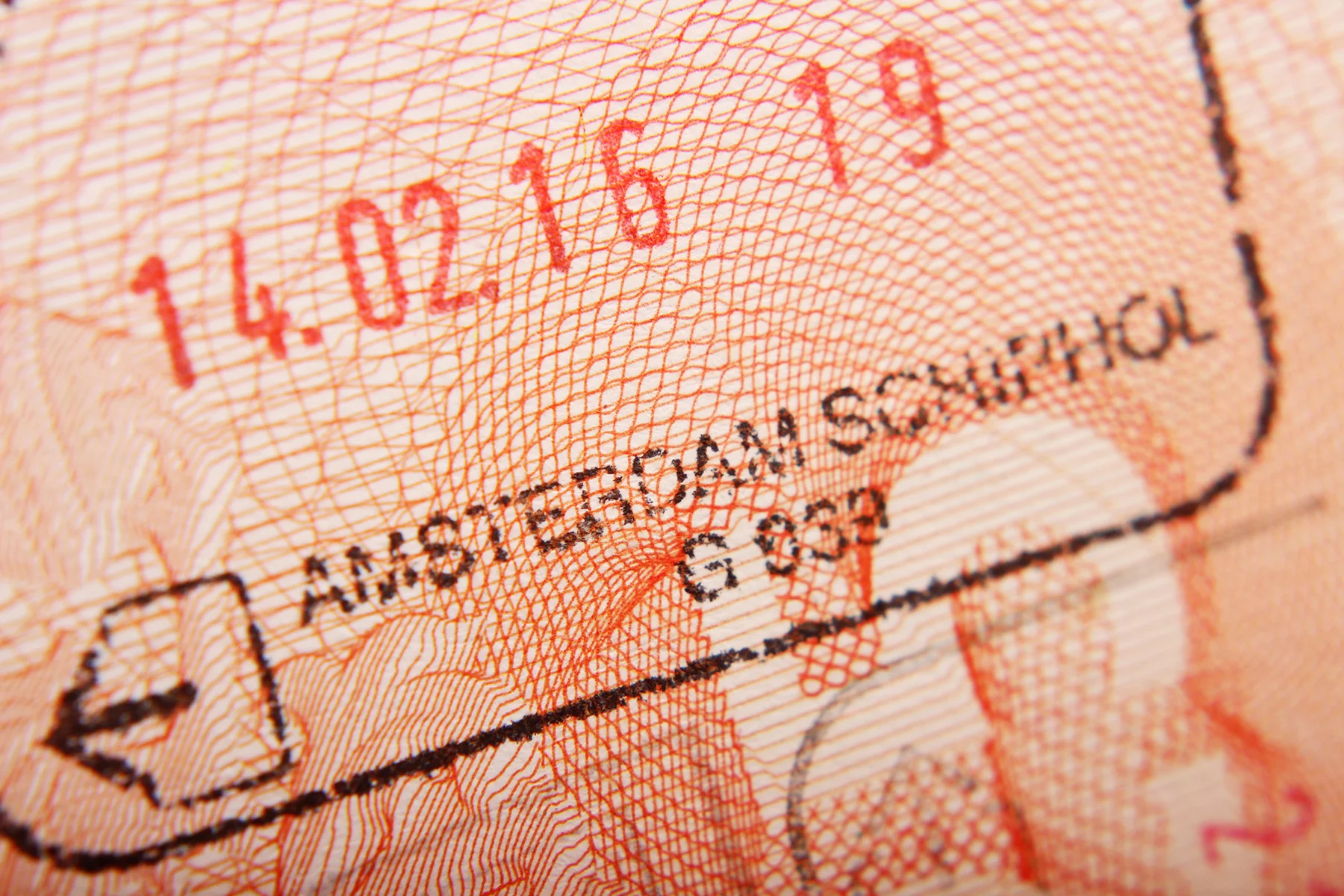Finding a job in the Netherlands takes more than just translating your resume or CV to Dutch. You’ll also need to learn about the requirements for international employees (such as Dutch visa regulations and work permits), the current job market, and how and where to find the most up-to-date vacancies (vacatures).
Get ready to launch your career in the Netherlands once you’ve read the following:
Resume.io
Trying to land the job that will take you on your next big adventure? Make sure your application is top of the pile with Resume.io’s online resume builder. They provide resume templates, cover letter help, and more, making job applications effortless. Make it to the next round with Resume.io.
The Dutch job market
The Netherlands’ job market has undergone notable changes in recent years, positioning it as one of Europe’s most stable and appealing destinations for workers. The country offers diverse opportunities in industries such as technology, logistics, finance, and renewable energy. However, challenges remain, including labor shortages in key sectors and a growing demand for highly skilled professionals.

Unemployment in the Netherlands remains relatively low compared to other European countries. As of October 2024, the Dutch unemployment rate was 3.6%, well below the EU average of 5.9%.
This reflects the Netherlands’ robust labor market, with strong employment rates even among young people compared to neighboring countries. However, there is increasing pressure to fill vacancies in areas like healthcare, IT, and engineering.
What jobs are in demand in the Netherlands?
The Netherlands’ main industries include:
- Agriculture and food
- Energy
- Chemicals
- High tech systems and IT
- Logistics and transportation
Skills shortages have been reported in the following fields:
- Healthcare
- Information Technology
- Engineering
- Education
- Skilled trades
The biggest Dutch-owned companies are:
- Royal Dutch Shell
- ASML
- Philips
- Heineken
- ING Group
In addition to these, multinational companies with a strong presence in the Netherlands include Microsoft, Google, Unilever, IKEA, and Tesla.
Job vacancies for foreigners in the Netherlands
There were 396,500 jobs available in the Netherlands at the end of 2024. This includes nearly 42,000 public sector jobs. Sectors with the highest number of vacancies are commercial services, wholesale and retail, business services, manufacturing and energy, and health and social work.

Highly skilled workers are in great demand, so much so that there’s a fast-track immigration process to get them in. There are also tax benefits (the 30% tax ruling) for some international employees, including engineers, technical workers, IT specialists, finance bros, and experienced sales, marketing, and customer service employees.
The Dutch government actively supports addressing labor shortages and enhancing workforce integration. Programs are in place to attract skilled foreign workers, including the Highly Skilled Migrant Visa, which makes it easier for international professionals to enter the Dutch labor market.
Unlike some other European countries, the Netherlands faces fewer structural mismatches between skills and demand, creating a favorable environment for expats. Foreign workers with specialized skills are particularly valued, often finding roles in industries where their expertise complements local talent.
How to find jobs in the Netherlands
Expatica jobs in the Netherlands
On the Expatica job board, you can find a constantly changing selection of English-speaking and multi-language vacancies. Job opportunities include sales, IT, and other industries in Amsterdam, Rotterdam, The Hague, and other major cities in the Netherlands.
EURES
If you’re from the EU/EFTA region, you can find jobs in the Netherlands on the EURES (European Employment Services) website. EURES is a job portal network maintained by the European Commission and is designed to facilitate free movement within the EU.
Public job sites
The Employee Insurance Agency (Uitvoeringsinstituut Werknemersverzekeringen – UWV) is a government organization responsible for unemployment benefits. They also have a website for job vacancies and have a network of partner sites and employment agencies.

You can also visit one of their branches to get advice and information. Be aware, however, that this will bring a lot of administrative paperwork and headache.
Job websites in the Netherlands
Job websites for Dutch and English-speaking vacancies in the Netherlands include:
- Glassdoor
- Good Company
- Intermédiair
- LinkedIn jobs
- National Vacature Bank (in Dutch)
- Stepstone
- Vacaturevia (in Dutch)
- We know people
English-speaking jobs
If you’re looking for an English-speaking job, there are agencies specifically for speakers of English and other languages:
Recruitment agencies
Dutch companies often rely on recruitment agencies (uitzendbureaus) to find their next employee. These agencies not only support people in finding employment but also screen potential recruits on behalf of employers.
In some cases, you are contracted by the agencies rather than your place of work. In that case, the employment agency (detacheringsbureau) will pay your wages. You should what is what before signing any dotted line.

For those who work in specific fields, there are also specialist job agencies:
- Aquent – web design, strategy, and content
- Darwin Recruitment – IT and telecoms
- Rave-cruitment – ICT recruitment
- Jouw ICT Vacature (in Dutch)
Foreign language teaching
To teach English in a school in the Netherlands, you’ll generally need a bachelor’s degree and a TEFL certification. Most teaching contracts align with the academic year, beginning in August or September and ending in June or July. Some teachers also choose to teach at English language camps during the summer or offer private lessons.
The main cities for teaching jobs include Amsterdam, Rotterdam, The Hague, and Utrecht. There are numerous English language schools across the country, with a significant concentration in these urban areas.
You can also explore opportunities with organizations like the British Council and search for positions on TEFL-associated websites such as TEFL.com, ESLbase, and The TEFL Academy.
Embassies and foreign organizations
Exploring employment opportunities at embassies and consulates in the Netherlands, particularly in cities like The Hague and Amsterdam, can be a rewarding endeavor. However, most positions require a high proficiency in both spoken and written Dutch.
The British Embassy in The Hague occasionally advertises job openings. These roles may involve working on foreign policy issues and providing various services for British nationals in the Netherlands, including assistance with emergency travel documentation. For current vacancies, visit the British Embassy The Hague recruitment page.

Similarly, the U.S. Embassy in the Netherlands offers employment opportunities. Prospective applicants can find information on available positions and application procedures on the U.S. Embassy’s job opportunities page.
For a broader search, consider exploring vacancies at other embassies and international organizations based in the Netherlands. Websites like UNjobs list current openings in various international institutions located in the country.
Newspapers
Dutch newspapers are worth checking out to keep an eye on vacancies across the Netherlands:
- AD
- NRC (and its job platform carrières)
- Volkskrant
Make the first move: speculative applications
There’s no harm in firing off some speculative applications to companies you’d particularly like to work for. Try looking on the company websites to see if they have a vacancies page or contact details where you can send your CV.

The Immigration and Naturalization Service (IND) also posts a list of recognized employers/sponsors who have permission to bring highly-skilled workers to the Netherlands with preferential immigration conditions, including not needing a work permit. You can contact the individual companies on the list to find what jobs in the Netherlands might be available.
Self-employment and freelancing in the Netherlands
Another option is to set out on your own and either work as a freelancer in the Netherlands or starting up a Dutch business. Approximately 16.4% of the Dutch population are self-employed, including many foreign residents. Anyone can start their own business in the Netherlands if they have a residence and work permit.
For freelancers and entrepreneurs working with international clients, managing payments across borders can be challenging. A Wise Business account can simplify this process by allowing you to receive payments in multiple currencies without the high conversion fees typically charged by banks. This is particularly valuable when invoicing clients abroad or paying international suppliers, as you can hold and manage money in different currencies and convert at the mid-market exchange rate when needed. Many self-employed expats find this reduces their banking costs significantly and simplifies their accounting processes.
There are various different business structures in the Netherlands, including sole trader (eenmanszaak) or private limited company (besloten vennootschap – BV). You can also work as a freelancer (zelfstandige zonder personeel – ZZP). However you set yourself up, you will need to register at the Netherlands Chamber of Commerce (Kamer van Koophandel – KvK) and follow the correct procedures around issues such as taxation and accounting.
Traineeships, internships, and volunteering in the Netherlands
University graduates can find EU-based traineeships via the European Commission Traineeships Office (Bureau de Stages); otherwise, you can search for internships and placements on AIESEC (for students and recent graduates in the UK) or IAESTE (for students in science, engineering, and applied arts). Internships can also be found at Globalplacement and Intern Abroad.

For those aged between 17 and 30, you can find volunteer programs at the European Voluntary Service (EVS), where you work abroad for up to 12 months in exchange for board, food, insurance, and a small allowance. Concordia is another organization for volunteer opportunities. For holiday volunteering opportunities, check Workaway.
Jobs in the Netherlands for Americans
If you’re an American looking for a job in the Netherlands, try exploring platforms like LinkedIn, Glassdoor, as well as local sites such as Werk.nl and &Work.
Industries with opportunities for native English speakers in the Netherlands include technology, logistics, and international business. Americans may have an especially easy time finding work at multinational companies based in cities like Amsterdam and Rotterdam.
While learning Dutch can broaden your job prospects, many roles in international firms or English-speaking environments do not require proficiency. Programs like the Orientation Year Visa (Zoekjaar) can also help recent graduates from the US find employment in the Netherlands.
How do you apply for a job in the Netherlands?
Job application processes in the Netherlands are fairly similar to those in many other countries. You generally need to send in a CV or resume, fill in an application form, and write an application letter (also known as a cover letter).
If you are successful, you will be invited to an interview. This may also be accompanied by a skills test, depending on the role you have applied for. Your prospective employer may ask you for references from previous employers as well. This doesn’t always happen and is more common among large companies, but you should be prepared to have two or three good references to hand.
What are the requirements to find work in the Netherlands?
1. Do you need a Dutch work visa?
If you’re from the EU or the European Free Trade Association (EFTA – Iceland, Liechtenstein, Norway, and Switzerland), you are free to live and work in the Netherlands without the need for a work visa or residence permit. However, you will need to register with the Dutch authorities.
If you’re from anywhere else, your employer will typically need a work permit (tewerkstellingsvergunning or TWV) for you, and you must also hold a residence permit.
These are the main types of work permits available in the Netherlands:
- Tewerkstellingsvergunning (TWV) – Work Permit: Required for employment periods of up to 90 days. Employers must apply for this permit on behalf of the employee.
- Gecombineerde Vergunning voor Verblijf en Arbeid (GVVA) – Combined Residence and Work Permit: Necessary for employment exceeding 90 days. This single permit combines both residence and work authorizations.
- Highly Skilled Migrant Permit: Designed for highly skilled professionals who meet specific salary and expertise criteria. Employers must be recognized sponsors to hire under this scheme.
- Orientation Year (Zoekjaar) Permit: Allows recent graduates from Dutch universities or recognized international institutions to seek employment or start a business in the Netherlands for up to one year
- Intra-Corporate Transfer Permit: For employees of multinational companies transferring to a Dutch branch as managers, specialists, or trainees
- Entrepreneur Permit: For individuals intending to start their own business or work as self-employed professionals in the Netherlands. Applicants must meet certain criteria regarding their business activities and economic contribution.
2. What are the language requirements to work in the Netherlands?
You don’t have to speak Dutch to work or live in the Netherlands. In fact, the Dutch rank 1st out of 111 countries in English-language skills. Many Netherlands-based companies even have it as their main business language.

That said, being able to speak Dutch certainly does increase your chances of getting a job. You will probably end up working for a large international company like Uber or Adidas if you don’t. Similarly, if you work for a smaller company, you will generally need to understand Dutch to participate in small talk during lunch hours.
3. Can you transfer your qualifications to work in the Netherlands?
Most major European countries are signed up to the Bologna Process, through which your qualifications from your home country will be recognized in the Netherlands.
You can find out whether your profession is regulated (needs specific qualifications for you to be able to practice it) in the Netherlands by checking on the European Commission’s database.
4. You will need a tax and social security number
Before you can start your job, you will need a Citizen Service Number (burgerservicenummer – BSN). This is a personal tax and social security number that is necessary for almost anything official in the Netherlands – including opening a bank account. You should apply for this at your local city hall shortly after you arrive in the country.
Financial support while looking for a job in the Netherlands
The UWV can provide information and support for those looking for a job. As said before, this agency is also responsible for unemployment benefits in the Netherlands. However, these are insurance-based and determined by the amount of time you have spent working in the country. Foreign residents can’t access social security benefits when they first move to the Netherlands. Even EU/EFTA residents have to wait three months before they can make a claim.
There is continuing vocational and educational training (CVET) for those unemployed and looking for work. Although this is mostly provided by private companies, some government funding is available to access a course. However, this is usually restricted to those on unemployment benefits.
Starting your job in the Netherlands: important questions
Once you’ve received a job offer in the Netherlands, your contract will be either fixed-term (temporary) or permanent (indefinite). Dutch law is very strict with employers about how they may treat their employees based on the nature of their employment contract.
When starting your new position, managing your first salary payments effectively becomes important. Many expatriate workers maintain financial connections in their home countries while building their life in the Netherlands. A Wise account can help new employees manage money in multiple currencies simultaneously without the high conversion fees charged by banks. This is particularly useful if you need to send money home for ongoing expenses, repay loans in your home currency, or simply maintain savings in different currencies. Having access to the mid-market exchange rate can save you significant amounts compared to using regular bank transfers for international money management.
Regarding probation periods, Dutch law stipulates that for contracts exceeding six months but less than two years, a maximum probationary period of one month is permissible.
Once you’ve secured a job in the Netherlands, there are a few things you should keep in mind:
- Check if your employer has enrolled you in any work-based insurance programs. If not, it might be worth taking out additional coverage.
- Looking into the pension arrangements (if there are any), and whether you might want to top up with private pension arrangements
- Read up on the topic of income tax, and especially, whether you are eligible for the 30% ruling allowance
- Ask your new HR department for the dress code and lunch arrangements
Useful resources
- Werkzoekenden – UWV employment portal with job vacancies and support
- EURES – EU job search portal















